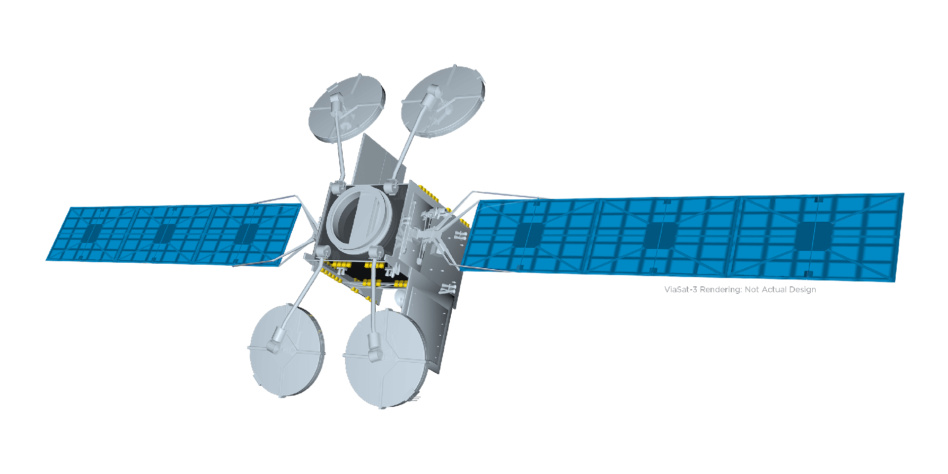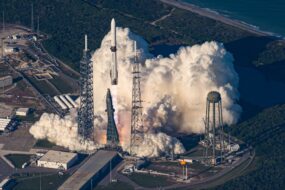Viasat (NASDAQ: VSAT) reported earnings last Thursday. Highlights for the satellite communications player:
- $720M in Q4 2021 revenues, which is up 25% year-over-year.
- Sales in Viasat’s Satellite Services segment were $310M, a YoY increase of 43%, largely driven by new aviation customers.
- Viasat posted a net loss of $6.6M, which the company attributed to “higher depreciation and non-recurring acquisition-related expenses.”
- Adjusted EBITDA grew 10% YoY to $163M. Company margins shrunk by ~3% due to upcoming mission costs, M&A activity, and larger R&D spend.
- The company has a sales backlog of $2.1B, down 10% YoY.
Virgin Atlantic has signed on as a new in-flight connectivity (IFC) customer. “Although COVID-19 continues to create uncertainty, the gradual reopening of the global economy has been a tailwind, especially for our commercial IFC business,” Viasat said.
Looking ahead, Viasat has two notable events on the horizon this year…
1) Launching the $2.3B ViaSat-3 constellation. The GEO satellites are expected to bring unprecedented speeds, capable of delivering 1-Terabit/second network capacity and more flexible, dynamic, and targeted service for customers where they are located.
- A ViaSat-3 Americas satellite will launch likely later this summer, in a delay that the company attributed to supplier issues. EMEA and APAC ViaSat-3 satellites are set to launch six months and one year later, respectively.
On the topic of new competition from LEO players, “it’s a very big market,” Viasat Executive Chairman Mark Dankberg told analysts. “The better the services, the more value you can offer as a function of price, [and] the bigger the market is.”
- “We’re seeing the market grow, and I think we’re still getting a share of that market that’s sufficient for our growth targets.”
- “If you look at what we’re doing on the enterprise side, we tend to be a lot more vertically integrated into each specific market, where there’s quite a bit of value-add besides just providing a broadband pipe. “
2) Closing a $7.3B mega-deal. Last November, Viasat announced its intentions to acquire Inmarsat, in a would-be monumental merger that took the satellite world by surprise. Viasat CEO Rick Baldridge was recently in London to meet with UK security agencies. “This is not a step-in-and-steal deal,” The Guardian quoted Baldridge as saying. “It isn’t about ripping out cost to make the numbers. I don’t think people here will see a lot of change.”





